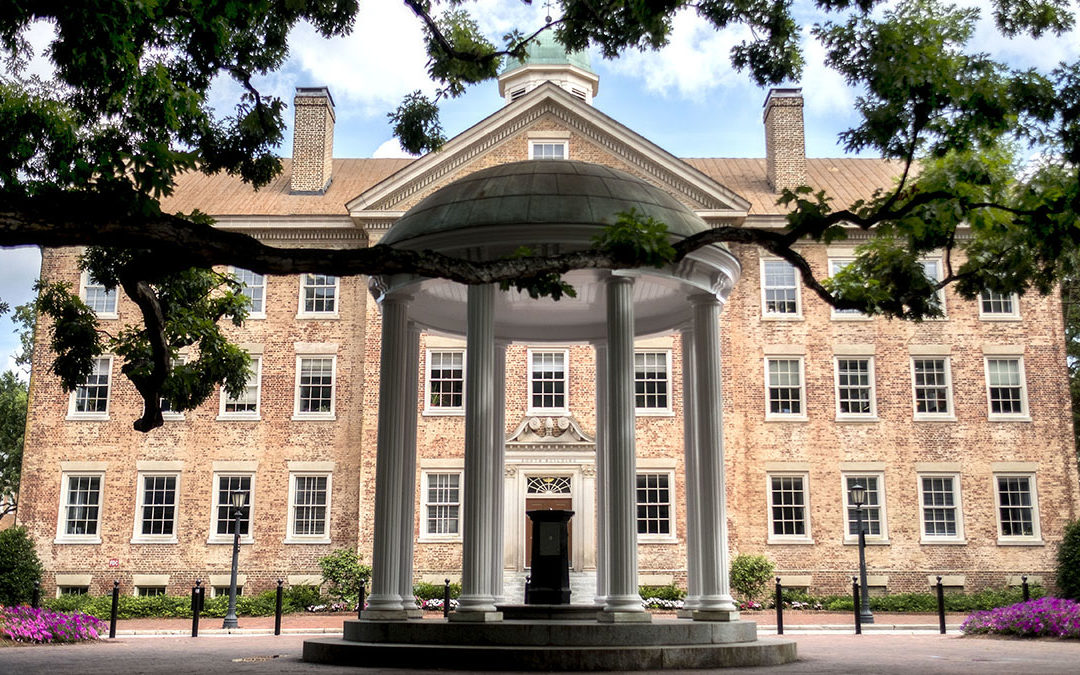(Chapel Hill, N.C.) – The race-conscious admissions policy at the University of North Carolina Chapel Hill (UNC) is legal and must be upheld, Judge Loretta C. Biggs from the U.S. District Court for the Middle District of North Carolina ruled Monday. The following are statements from groups involved with the case:
Genevieve Bonadies-Torres, an attorney with the Educational Opportunities Project at the Lawyers’ Committee for Civil Rights Under Law: “Race-conscious admissions policies are a proven tool that advance equal access to educational opportunities, and ensure our talented yet historically marginalized groups are not overlooked. As our clients demonstrated with their trial testimony and evidence, race is an integral part of a students’ identity, and must be treated as such during the admissions process. We need to expand on the progress we’ve made when it comes to diversity and inclusivity in the classroom, and we are elated that the court has concluded that UNC’s admissions policy is both necessary and lawful.”
Rick Glazier, executive director of the North Carolina Justice Center: “Judge Biggs’ ruling rightly affirms UNC’s race-conscious admissions policy that promotes diversity, enriching the educational environment for all its students. As North Carolina’s flagship school, UNC has a duty to educate and prepare new generations of North Carolina leaders to serve in an increasingly multi-ethnic society, as well as a responsibility to counteract the present-day effects of the school’s history of state-sponsored segregation and racial discrimination.”
Intervenor and UNC graduate Star Wingate-Bey: “As proven by me and my fellow student intervenors’ testimonies and lived experiences in undergrad at UNC-Chapel Hill, racial diversity is of the utmost importance to a quality education and a safe environment in which to learn. My goal for joining this case was to help create the UNC I wish I had experienced. Let’s hope this allows UNC to push further to build a more racially diverse campus and community, inclusive of student body and faculty.”
Intervenor and UNC graduate Cecilia Polanco: “I have been grateful to participate in the advocacy of affirmative action in admissions through this case. It was an honor to testify about my experience at UNC, and to share how truly diverse spaces significantly contributed to my education in and outside the classroom. It feels great to be seen, heard, and valued for who I am as a whole person, and to have advocated for future students to continue to create and experience diverse and equitable spaces at UNC.”
Background:
The Lawyers’ Committee for Civil Rights Under Law, North Carolina Justice Center and Relman Colfax PLLC represent a diverse group of Black and Latinx students, as well as alumni, who intervened in the case to help defend UNC’s admissions policy. Black and Latinx students remain underrepresented and have been historically marginalized on UNC’s campus. In November of 2020, the district court held a two-week trial on the lawfulness of UNC’s admissions policy where eight students and alumni testified for intervenors, demonstrating how UNC’s race-conscious admissions policy has helped to increase diversity and how all students have benefitted from the increased diversity.
In her ruling, Judge Biggs relied extensively on the testimony and evidence presented from the student intervenors and UNC. In upholding UNC’s admission, the court stated, “Consistent with Supreme Court precedent, the University’s admissions program here engages in a highly individualized, holistic review of each applicant’s file, giving serious consideration to all of the ways an applicant may contribute to a diverse educational environment. Further, the University’s use of race in the admissions process is narrowly tailored in that the University considers race flexibly as a plus factor as one among many factors in its individualized consideration of each and every applicant.
The court further held that “Ensuring that our public institutions of higher learning are open and available to all segments of our citizenry is not a gift to be sparingly given to only select populations, but rather is an institutional obligation to be broadly and equitably administered. While no student can or should be admitted to this University, or any other, based solely on race, because race is so interwoven in every aspect of the lived experience of minority students, to ignore it, reduce its importance and measure it only by statistical models as SFFA has done, misses important context to include obscuring racial barriers and obstacles that have been faced, overcome and are yet to be overcome.
###
About the Lawyers’ Committee for Civil Rights Under Law – The Lawyers’ Committee for Civil Rights Under Law (Lawyers’ Committee), a nonpartisan, nonprofit organization, was formed in 1963 at the request of President John F. Kennedy to involve the private bar in providing legal services to address racial discrimination. The principal mission of the Lawyers’ Committee for Civil Rights Under Law is to secure, through the rule of law, equal justice for all, particularly in the areas of voting rights, criminal justice, fair housing and community development, economic justice, educational opportunities, and hate crimes. For more information, please visit https://lawyerscommittee.org.
About The North Carolina Justice Center – The North Carolina Justice Center is one of North Carolina’s preeminent voices for economic and social justice. As a leading progressive research and advocacy organization, its mission is to eliminate poverty in North Carolina by ensuring that every household in the state has access to the resources, services, and fair treatment it needs to achieve economic security. For more information, visit www.ncjustice.org


